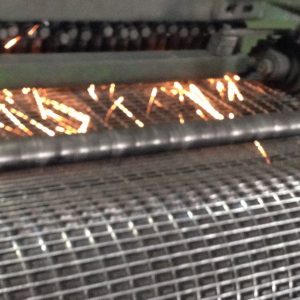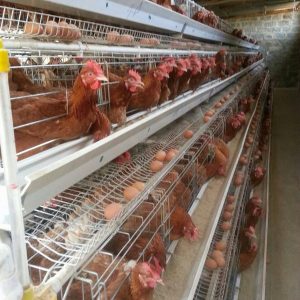
Revealing the Secret of Fermentation Bed Raising
Fermented bed chicken technology (also called indigenous bacteria chicken, natural chicken breeding method) is a kind of odorless, flies-free, pollution-free, and zero-emission ecological agricultural technology. Fermented bed chicken technology is based on microbiology and ecology The principle is to use the uniquely active composite microbial group to continuously and steadily convert chicken manure and urine waste into gas, useful substances and energy, and achieve a new environmentally friendly breeding mode with the goal of complete degradation of manure and urine without pollution and zero emission. Before using this mode to raise chickens, you must make preparations for raising chickens on the fermentation bed.
Benefit Analysis
Fermentation bed raising chickens can reduce operating costs: there is no need to clean the chicken coop every day to save labor; chicken feces are usually decomposed by microorganisms in three days on the fermentation bed, and the feces provide rich nutrients to the microorganisms and promote the continuous reproduction of beneficial bacteria. Bacterial protein, chickens eating these bacterial protein not only supplement nutrition, but also improve immunity.
In addition, since chicken feed and drinking water are also supplemented with probiotics, there are a large number of beneficial bacteria in the gastrointestinal tract. Some cellulase and hemicellulase in these beneficial bacteria can decompose the cellulose and hemi-fiber in the straw. The use of this method of breeding can increase the proportion of roughage and reduce the amount of concentrate, thereby reducing the cost of breeding. According to production practice, the saving of feed is generally above 10%.
After raising chickens on the fermentation bed, the cost of medicine can be reduced. Chickens living on the fermentation bed are healthier, less likely to get sick, and reduce the cost of medicine. After the litter and chicken manure are mixed and fermented, they will directly become high-quality organic fertilizer; it improves the quality of chicken and eggs and has a competitive advantage in the market.
Fermentation bed raising chickens can improve chicken’s disease resistance
The litter required for the fermentation bed to raise chickens is about 40 cm, and special fermentation bacteria are added. The litter has a special fermentation function. The beneficial functional microorganisms in the litter can completely decompose and transform the chicken manure during the fermentation process. It is converted into water vapor and odorless gas is discharged; the other part is converted into nutrients such as crude protein, bacterial protein, and trace elements. There is almost no odor in the chicken house. In this environment, the flock of chickens grows healthy naturally and their disease resistance is enhanced.
During the fermentation process of the fermenting bed, heat is generated, and the heat evaporates the moisture in the chicken manure into the air. The litter is basically kept dry. The surface temperature of the litter can be maintained at about 20°C throughout the year, providing a continuous and stable temperature. Hot ground, even when the weather changes suddenly or the heating facilities are not operating normally, the temperature in the chicken house is not easy to rise and fall, reducing the stress caused by this factor.
The fermented mattress material is basically kept dry, which is not conducive to the survival of coccidian oocysts, so chickens are not susceptible to pathogenic microorganisms on the fermentation bed, and the chance of intestinal infectious diseases such as E. coli and coccidiosis is significantly reduced.


